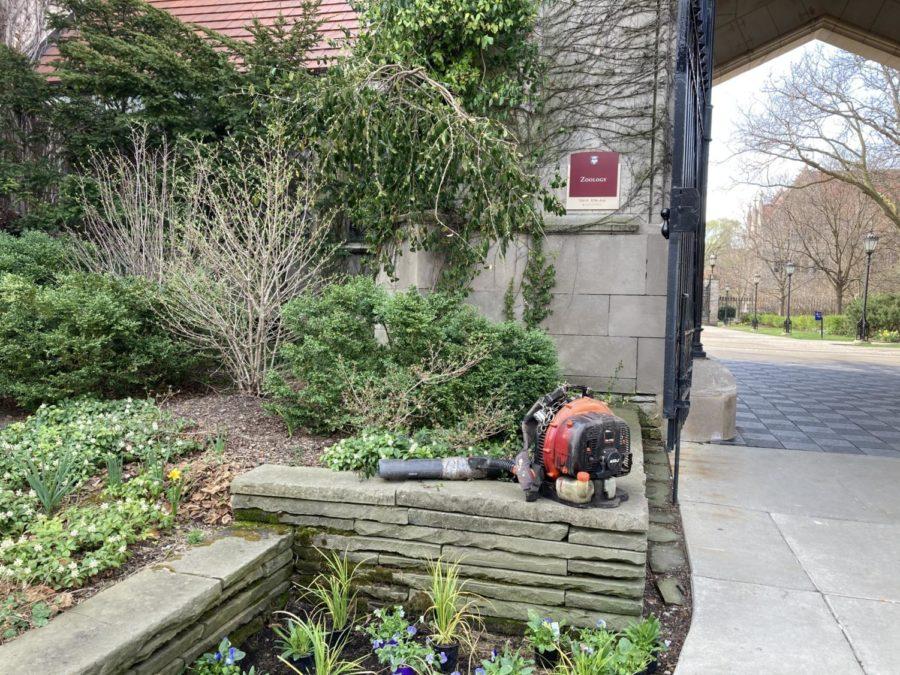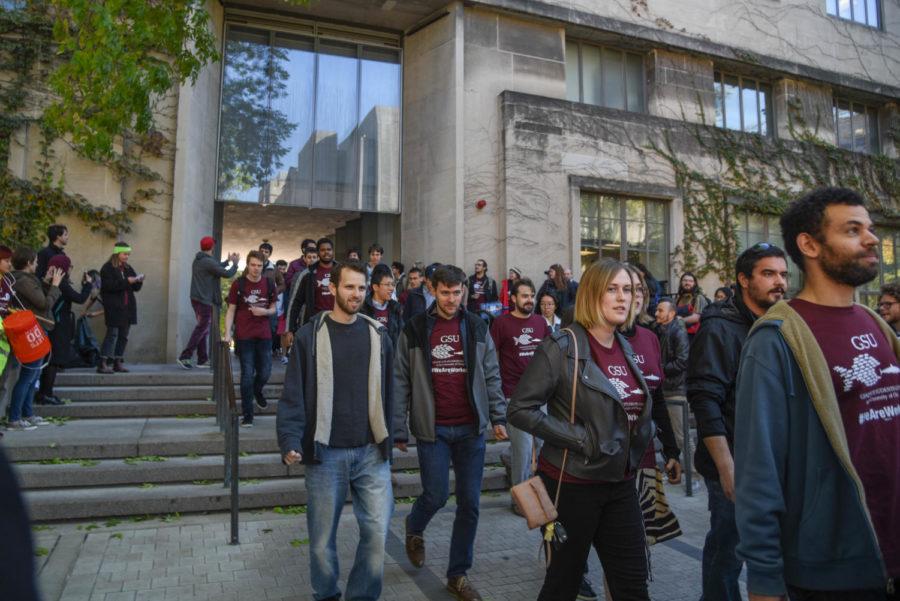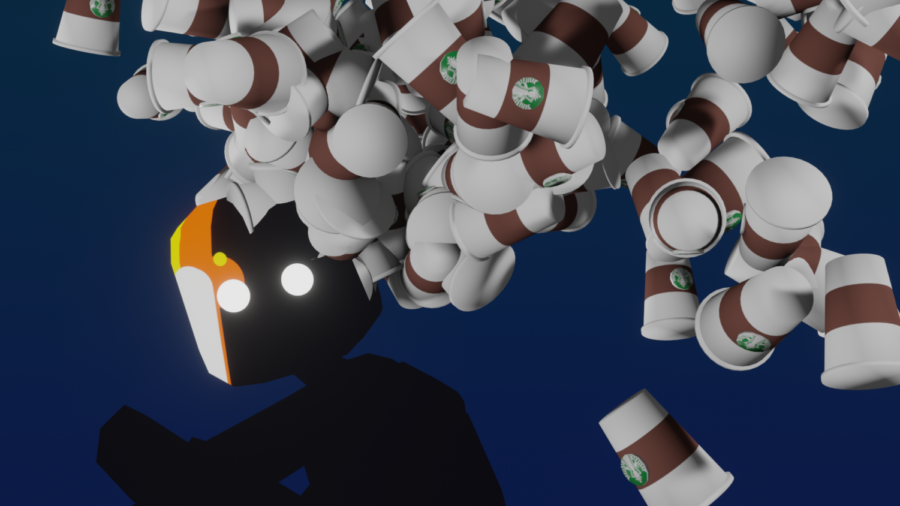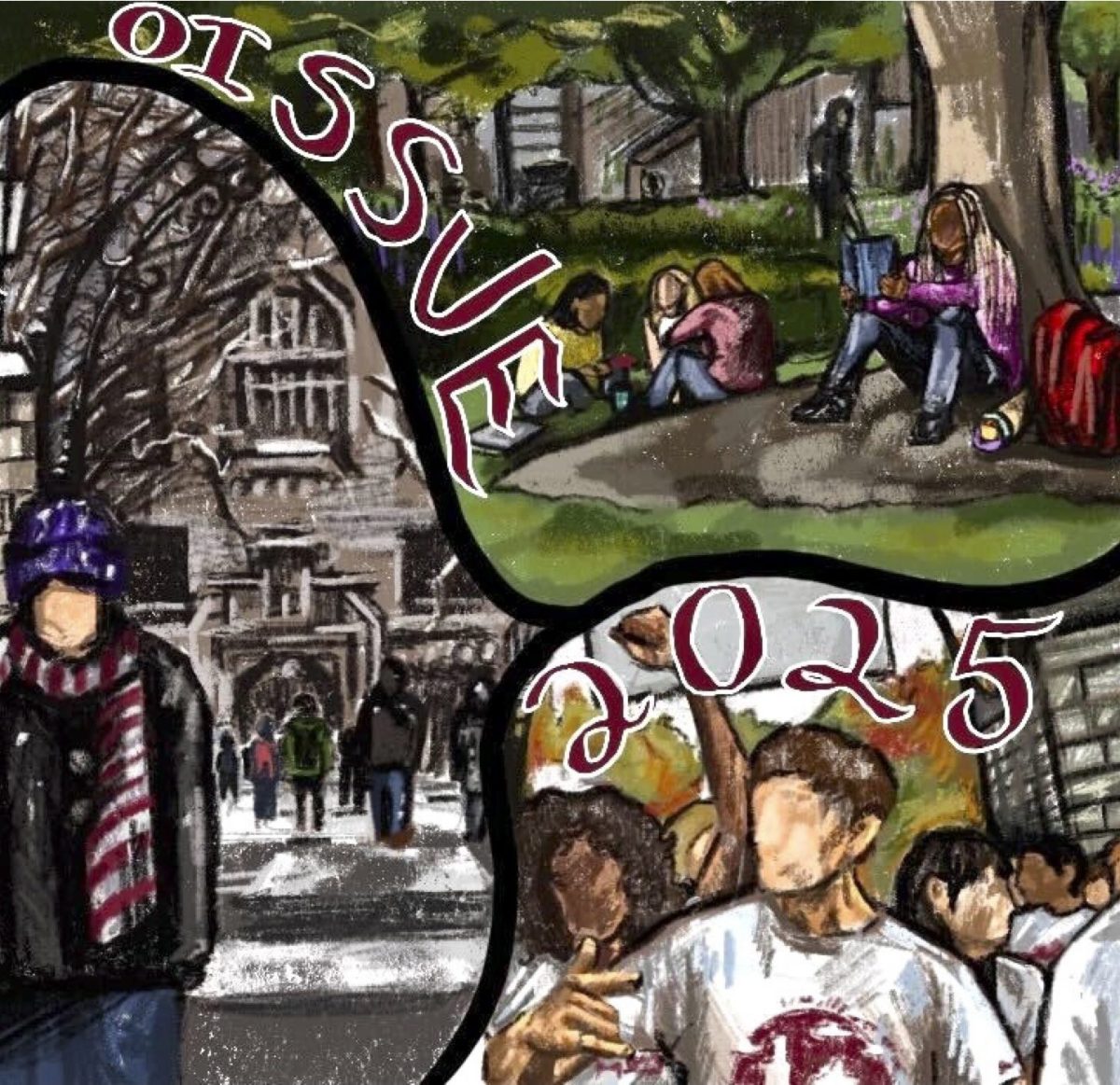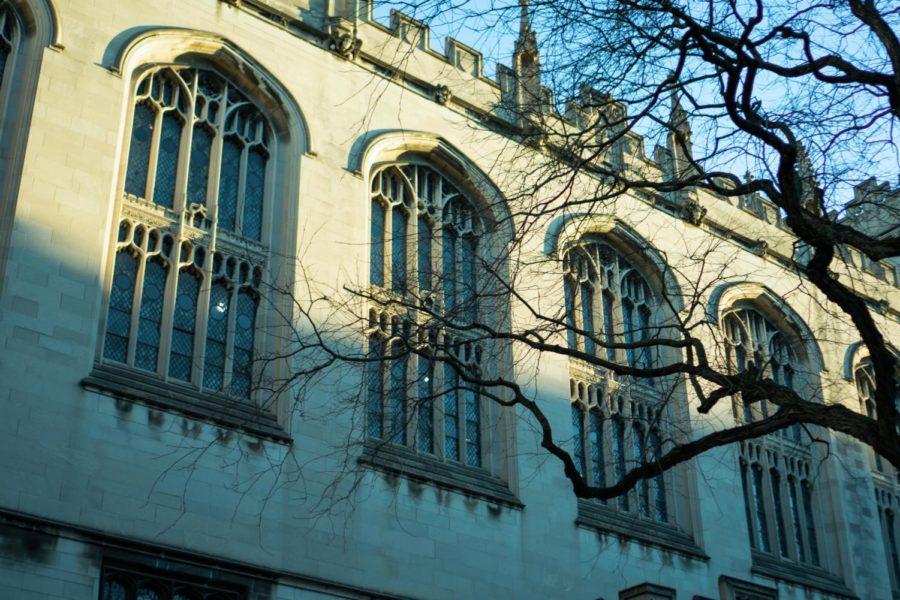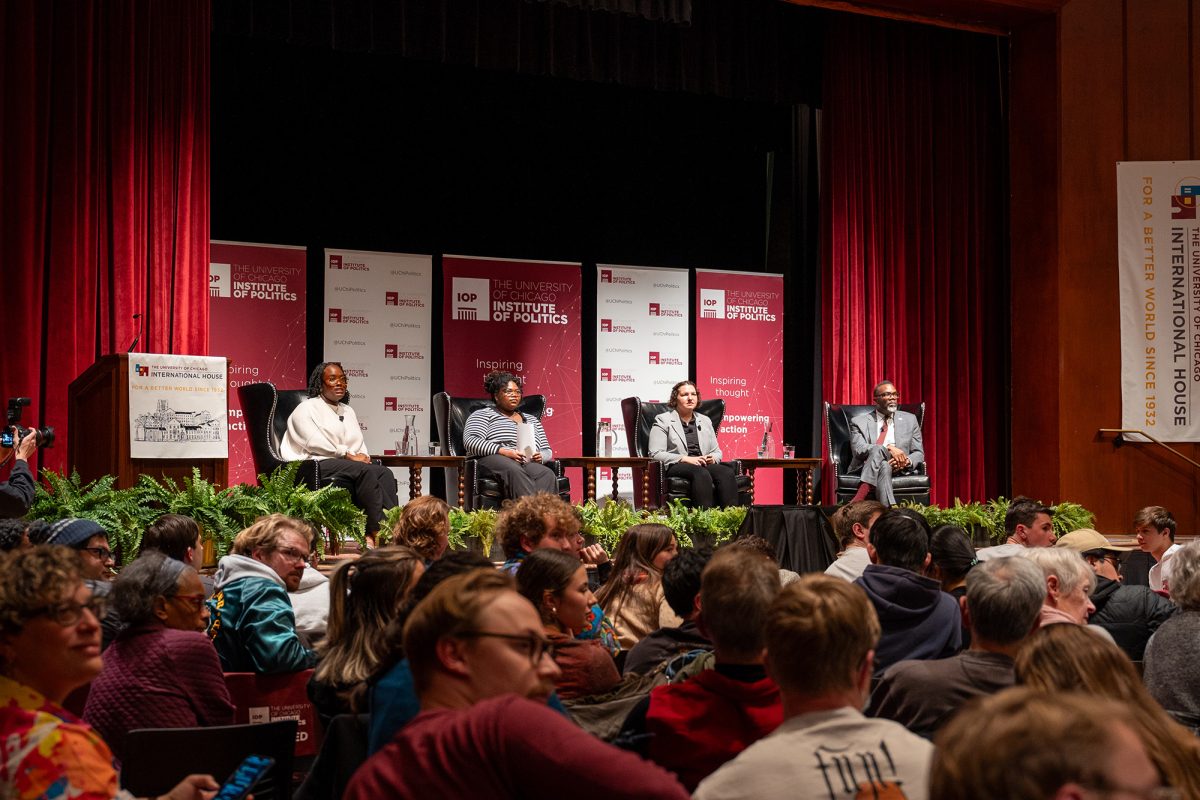One year ago, after the University announced a remote spring quarter, the campus closed down with one week’s notice. While students left the dorms and classrooms, a group of workers continued working under the title of “essential,” keeping the campus running at an abnormal time.
“We can’t perform our jobs at home––even in the beginning when things weren’t really bad,” said Bernard Gillespie, a building engineer at the University, about working during the pandemic. His crew, the building maintenance group, takes care of campus buildings, making sure that heating, air conditioning, refrigeration, fencing, and plumbing function on campus.
Amid rising COVID-19 positivity rates in spring 2020, this maintenance still needed to be done. Ensuring safe working conditions became the top priority for Service Employees International Union (SEIU) Local 73, the union that represents two separate UChicago chapters, Facilities Skilled Trades and Collegiate Assistant Professors. Thus, in early April, Facilities Services initiated a skeleton crew structure under rotating shifts in early April, during which only one or two workers from each skilled trade group were physically present on campus to perform daily maintenance of the facilities at one time.
While the idea was to keep as few crews on campus as possible to minimize the risk of viral spread, there were still complications. For example, all workers at the Steam Plant––a seven-floor building at East 61st Street and South Blackstone Avenue––had to work their normal schedules instead of rotating to make sure that enough steam was produced to keep UChicago Medicine running.
“We have to be creative even within our own group,” union representative Elizabeth Towell said of navigating unforeseen events during COVID-19 operations. “It’s not always easy for essential workers, especially during a pandemic.”
The rotational structure lasted for a few months before workers gradually returned to normal work in July. When the City of Chicago started to vaccinate essential workers in late January, skilled trade workers were also able to receive vaccines through the University. Both Gillespie and Joe Pruim, the president of the Facilities Skilled Trades chapter and a carpenter at the University, spoke positively about the University’s handling of COVID-19 safety protocols. “Everywhere it’s been very hard for people to get shots, and the University really comes through on that,” Pruim said.
In the months where maintenance workers were the only staff on campus, the administration’s oversight and responsiveness lagged. Towell told The Maroon that when filing grievances or asking questions, the responses from the University’s Employee and Labor Relations department have been significantly delayed compared to pre-COVID times. She had to escalate the requests to Brett Leibsker, the executive director of the department, because she did not hear back. “Everybody’s working from home except for us, so it’s just a disheartening feeling,” Gillespie added.
The University also implemented new policies to adapt to uncertainty during the pandemic. On March 19 last year, days after the University announced its plan for a remote spring quarter, Associate Vice President for Human Resources Casey Cook confirmed that all staff employees would receive up to six weeks of additional paid time off for reasons related to COVID-19, such as being infected with COVID-19 or taking care of family members who were ill.
However, the policy was reverted on July 1 of last year. Since then, a few workers at the skilled trades unit tested positive for COVID-19, but they were not able to take paid time off, according to Gillespie. Towell pointed out that in one circumstance, a worker was sent home without pay because they were infected. The union filed a grievance to the University, and Policy on University Quarantine Orders was later implemented. Although this policy did not directly address the grievance, it allowed for up to 10 “missed regularly scheduled workdays” to be paid if the worker received a quarantine directive from a University contact tracer. The quarantine directive may be issued if a contact tracer determines that “the employee was in close contact with an infected person in the course of performing their duties for the University.”
“That’s a process [which is] actually subjective to the University’s new contact tracing department,” Gillespie explained, pointing out the gap between the current policy and the previous 240-hour allowance of time off. “I can’t really say it left a bad taste in our mouth because it was a generous offer in the first place, but it does make us wonder, ‘Why did that just stop?’”
In a comment to The Maroon, University spokesperson Gerald McSwiggan wrote, “This was a temporary policy provided as an additional benefit to help support employees during the initial transition period. As remote work roles developed and University offices adapted to the pandemic, it was possible to rely on standard benefits for personal and family issues.”
Food Service Workers During the Pandemic
At the dining halls, most workers faced changes in their normal duties when the demand for food service reduced during the pandemic. Teamsters Local 743, the union that represents food service workers at the University, had worked closely with Bon Appétit, the University’s current food service provider, to ensure that workers received regular payments and benefits while performing different work.
In late March 2020, the University announced a partnership with the Greater Chicago Food Depository to provide food to South Side residents through leveraging existing University resources. Bon Appétit employees who worked at the dining halls were paid by the University to prepare and deliver packed food to the community so that they could stay employed during the pandemic, according to Local 743 President Debra Simmons-Peterson.
The implementation of this program followed an announcement in March from University Vice President and Chief Financial Officer Ivan Samstein that the University was working with
its “food service contractors to establish new roles and responsibilities for their employees to meet pressing needs in our community.” The food service workers were not directly paid by the University since they worked for the University under a contract with Bon Appétit.
With food service company Chartwells slated to take over campus dining in July 2021, Local 743 is in the process of negotiating a new labor contract. “It’s going to be very intense because we only have a small window,” Simmons said. The contract between Local 743 and Bon Appétit ends on June 30, and members would lose the benefits they receive through the contract, including medical insurance, if a new contract with Chartwells––which would have to start anew––is not in place.
However, Simmons also expects the union to have a “good relationship with Chartwells” as it had with Bon Appétit and the University’s former food services provider, Aramark. “The union will have an emergency meeting with employees and let them know the importance of mobilizing and being united so we can fight for a good contract.”
Envisioning a Post-Pandemic Campus
For the skilled trades, one ambitious post-pandemic plan is to establish a training program for youth in the surrounding neighborhoods. When hired, workers such as Gillespie and Pruim were all required to have at least five years of experience in the trade, after which they become known as journeymen. “One of our big things is the lack of apprenticeship to extend to people in the neighborhood [and] younger skilled talent, to hone their skills and actually [get] trained and have a roadmap to become journeymen if they get hired as an assistant, or helper, with these respective positions,” Gillespie said.
Before the pandemic started, the Skilled Trades chapter formed a training committee to plan the expansion of training. In its bargaining process, the chapter initially proposed a set number of trainings provided by the University, which the University shot down, citing logistic difficulties, according to Towell. In the 2019 Collective Bargaining Agreement reached between the union and the University, both sides agreed to form a training committee that would meet quarterly and “work to facilitate greater access to training for all union members.”
“It wasn’t what we wanted initially, but we were able to get something that we think is going to be an improvement,” Towell said. “[Training] is our goal for the next academic year.”
Data from UChicago’s Office of Civic Engagement show that the University is the largest employer in Chicago’s South Side and that nearly one-third of its employees live on the mid–South Side. But among the skilled trades, a majority do not live in Hyde Park, according to Pruim. Through extending apprenticeship to more residents close to campus, the chapter is trying to change that statistic. “That was the whole point of trying to come to some agreement with entry-level positions,” he said.
Expecting a full resumption of in-person activities in the fall, The Maroon asked workers about their expectations for students. “Anybody that’s on campus could be affected by anybody that doesn’t accurately report their test results,” Gillespie said. “I just hope that students can also take [safety guidelines] to heart and take it as seriously as we are, because we are here to serve you, essentially, and we hope that you would pay us the same respect.”



